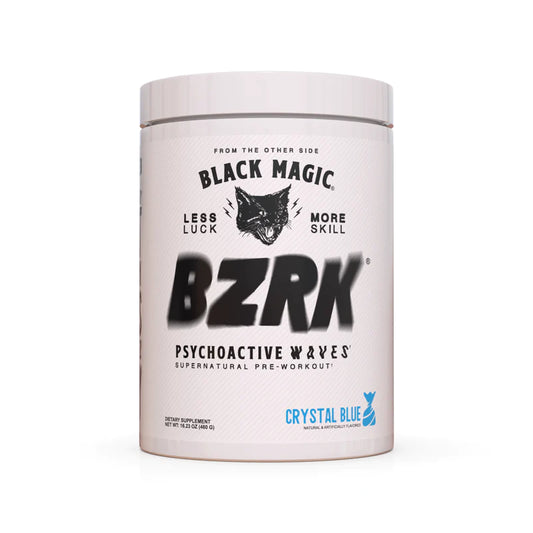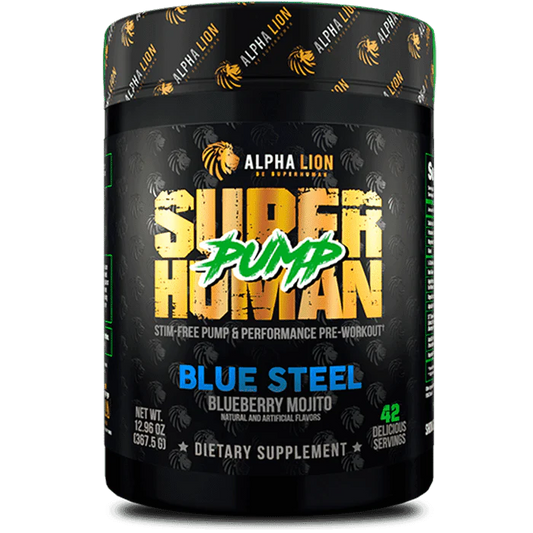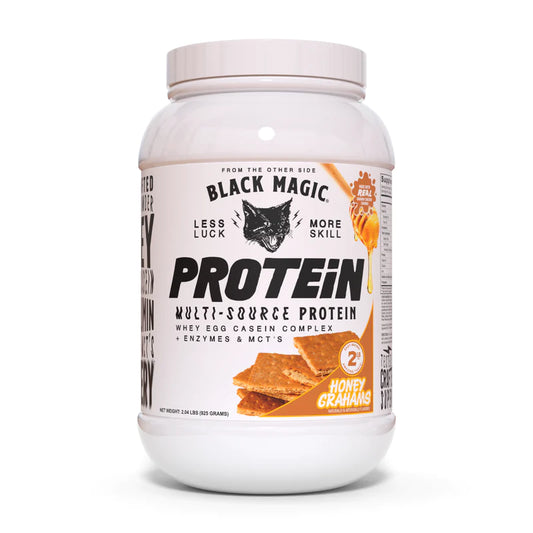Creatine is one of the most popular sports supplements on the market today. It's widely used by athletes and fitness enthusiasts looking to gain muscle, boost strength, and enhance performance. But what exactly is creatine? How does it work in the body? And is it safe and effective? This comprehensive guide covers everything you need to know about the science behind creatine.
What is Creatine?
Creatine is a molecule produced naturally in the human body that plays a key role in energy production. It stores high-energy phosphate groups that can donate phosphate to ADP (adenosine diphosphate) to produce ATP (adenosine triphosphate). ATP is the primary energy currency of cells and is used to power muscle contractions and other cellular processes that require energy.
The body can synthesize some creatine from amino acids, but it also obtains creatine from food, primarily meat and fish. The average omnivorous diet provides about 1-2 grams of creatine per day. The creatine is taken up into muscles where it is converted to phosphocreatine and stored for later use.
The body meticulously maintains creatine stores of approximately 120 grams in skeletal muscle. When creatine stores drop even 10-20%, energy availability and exercise capacity decrease. Therefore, consuming additional creatine through supplementation can increase stores beyond normal levels to enhance performance.
Mechanisms of Action
Creatine primarily exerts its performance-enhancing effects by increasing available phosphocreatine stores inside muscle cells. Phosphocreatine rapidly rephosphorylates ADP to regenerate ATP during intense muscular contraction. This provides an immediate source of energy and allows athletes to maintain higher workloads and train with greater volume.
In addition, creatine supplementation:
- Increases muscle cell volume and protein synthesis. Creatine draws water into muscle cells, causing them to swell. This stimulates anabolism and muscle growth.
- Buffers lactic acid buildup. Lactic acid contributes to fatigue during exercise. Creatine can help remove lactic acid, supporting higher intensity training.
- Reduces protein breakdown. Creatine lowers the rate of protein degradation during exercise, leading to greater gains in fat-free mass.
- Enhances neurological function. Phosphocreatine is also used to regenerate ATP in the brain. More creatine can improve cognitive performance under time constraints.
Benefits for Strength and Power Athletes
The effects of creatine supplementation are most pronounced when performing short-duration, high-intensity exercise such as weight lifting. Numerous studies have found that creatine can:
- Increase lean body mass and muscle fiber size (hypertrophy)
- Improve maximal strength on exercises like the bench press and squat by 5-15%
- Allow for greater training volume and ability to lift more weight
- Enhance anaerobic endurance and power output
- Reduce fatigue and speed muscle force recovery between sets
These benefits lead to greater adaptations to strength training over time. For this reason, creatine is one of the most useful supplements for power athletes like sprinters, weight lifters, throwers, and jumpers.
Benefits for Team Sports and Sprints
In addition to strength and mass gains, creatine improves repeated sprint performance and overall work capacity during intermittent high-intensity exercise. This makes it valuable for athletes in sports that involve sprinting or quick changes of direction like soccer, hockey, basketball, lacrosse, and football.
Supplementing with creatine allows these athletes to maintain speed and work output longer during competition. Creatine also speeds recovery between events or games played in close succession. Faster recovery translates to better performance in subsequent exercise bouts.
Benefits for Endurance and Aerobic Exercise
While creatine has less dramatic effects on endurance exercise, some benefits have been noted, particularly during intermittent high-intensity endurance sports like tennis.
Creatine supplementation may:
- Improve interval sprint capacity when combined with endurance training
- Increase time to exhaustion during submaximal aerobic exercise
- Reduce oxygen consumption and heart rate at a given exercise intensity
- Speed recovery following interval training bouts
By supporting greater work output during intense periods and aiding recovery, creatine can provide a small but meaningful boost to endurance athletes.
Is Creatine Safe?
When used appropriately, creatine is considered very safe and well-tolerated. No serious side effects have been definitively linked to creatine supplementation despite its widespread use. Athletes have consumed creatine for over 25 years with an excellent safety record.
The most common side effect is temporary water weight gain of about 2-5 lbs due to increased muscle cell volume. Weight gain is just cosmetic and does not affect performance. Creatine does not adversely affect hydration or sweat rate.
Creatine has also been wrongly blamed for muscle cramps and tears. In truth, these injuries are due to the stresses of training and competition, not creatine use. There is no scientific evidence that creatine causes dehydration or increases exercise-related muscle cramps or injury risk.
A small subset of users report mild gastrointestinal discomfort when starting creatine loading doses. This can be avoided by consuming smaller doses (5 grams) and ramping intake up gradually.
Overall, creatine remains one of the safest, best researched supplements for athletes looking to increase high-intensity exercise capacity and lean mass.
How to Supplement with Creatine
To increase muscle creatine stores quickly, a loading protocol is recommended when starting supplementation:
- Take approximately 0.3 grams per kg of body weight per day (20-25 grams per day) for 5-7 days. This saturates the muscles with creatine.
- Follow with a lower maintenance dose of 3-5 grams per day to keep stores elevated. Timing is not critical - creatine can be taken any time.
- Take creatine with food and ample water each day to aid absorption.
- Cycle off creatine for 4 weeks after 12 weeks of continuous use. This allows the body to restore baseline creatine levels. Resume another loading phase after the break.
Lower doses of 3-5 grams per day taken consistently can also increase creatine stores over a longer period of time, though the performance benefits take longer to realize.
Creatine should always be purchased from reputable supplement companies to ensure quality and safety. Powder forms are most economical, but creatine is also available in convenient pill and liquid formulations.
Who Can Benefit from Creatine?
Creatine offers benefits for a wide range of athletes looking to maximize exercise performance, increase lean mass, and reduce fatigue:
- Powerlifters, weightlifters, sprinters, throwers, and jumpers
- Team sports like hockey, soccer, football, basketball, volleyball
- High-intensity endurance athletes (tennis, lacrosse, etc)
- Recreational gym-goers looking to improve strength and body composition
- Older adults wanting to maintain muscle mass and function
- Vegetarians and vegans can benefit from creatine to compensate for lower dietary intake
Nearly anyone involved in intense anaerobic or resistance training can likely obtain meaningful performance benefits from creatine supplementation. It is one of the cheapest and most effective supplements for strength and power athletes.
Summary
In summary, creatine is an endogenous molecule stored in muscles that provides cellular energy during intense physical activity. Supplementing with creatine monohydrate increases phosphocreatine stores, enhancing strength, power, muscle gains, and anaerobic endurance.
Through mechanisms like increased protein synthesis and regulation of fatigue-related metabolites, creatine allows you to train harder, lift more weight, and recover faster between workouts. Decades of research has demonstrated creatine's efficacy and safety for athletes across many sports.
When combined with proper resistance training, creatine can help anyone engaged in high-intensity exercise improve body composition and maximize athletic performance. It remains the gold standard supplement for strength gains and repeated sprint ability.
Featured collection
-
Black Magic BZRK
Regular price $44.00 USDRegular priceUnit price / per -
Super Human Pump, Stimulant Free Preworkout
Regular price $48.00 USDRegular priceUnit price / per -
Black Magic Protein
Regular price $44.00 USDRegular priceUnit price / per -
 Sold out
Sold outEssential Preworkout
Regular price $39.00 USDRegular priceUnit price / per



